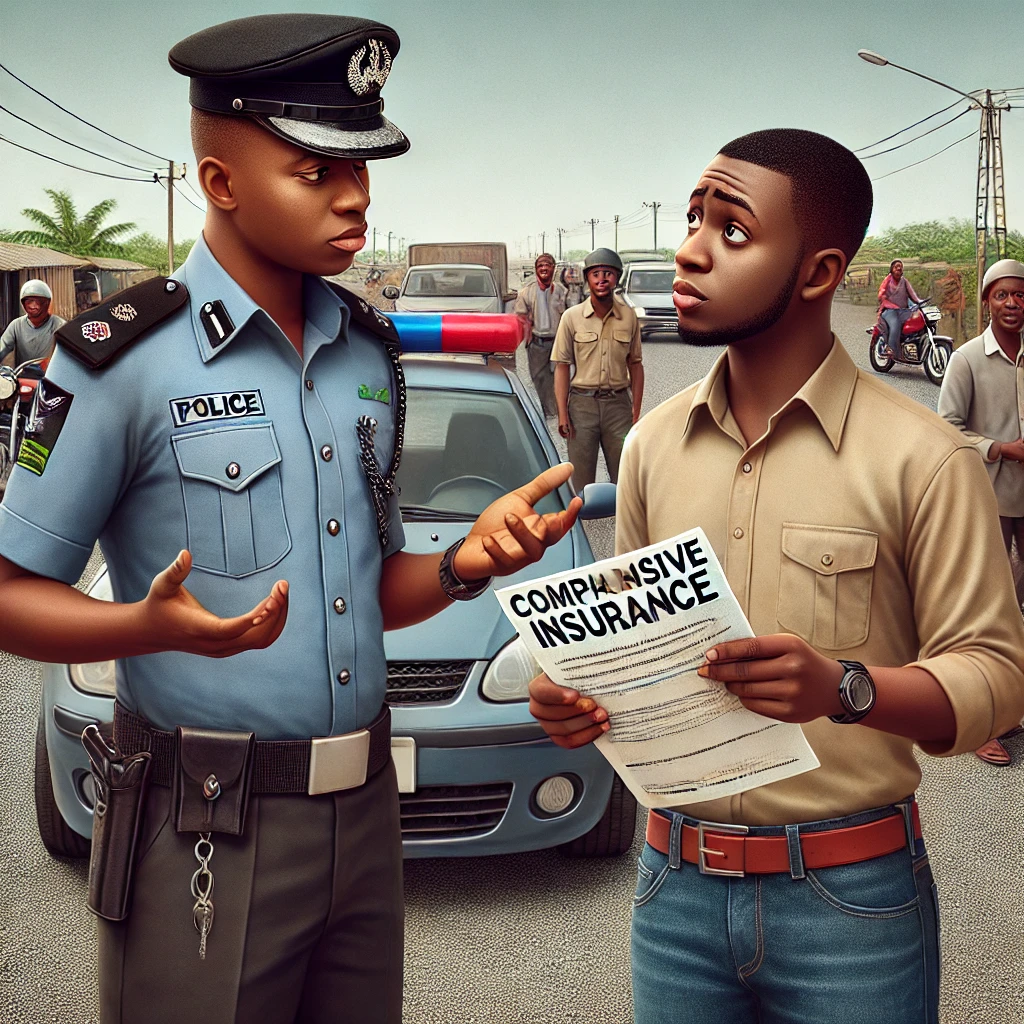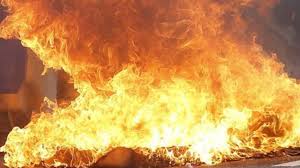Kunle thought he was fully covered until the police told him otherwise.
If you followed Kunle’s story in my previous post (Are you really protected), you know he was stopped at a police checkpoint, confidently presenting his insurance papers. But to his shock, the officers rejected his comprehensive policy, insisting that he must have third-party insurance. Frustrated and confused, Kunle wondered: How could this be happening?
Many Nigerians share Kunle’s confusion. Some assume that comprehensive insurance covers everything, while others don’t fully understand the difference between third-party and comprehensive policies. Even worse, some enforcement officers seem unaware of how these policies work, leading to unnecessary confrontations with motorists.
So, let’s set the record straight: What does comprehensive insurance really cover, and how can you ensure you are protected?
What Comprehensive Insurance Actually Covers
Comprehensive insurance offers wider protection than third-party insurance. Here’s what it includes:
✅ Damage to Your Own Car – Covers repairs or replacement if your car is damaged in an accident, whether or not you are at fault.
✅ Third-Party Liabilities – Just like third-party insurance, it covers injuries or damage caused to others.
✅ Fire and Theft – Protects against loss or damage due to theft, fire, or vandalization.
✅ Natural Disasters – Some policies are extended to cover floods, storms, and other acts of nature.
✅ Medical Expenses – Covers treatment costs for the driver and passengers after an accident.
Unlike third-party insurance, which only covers damage to others, comprehensive insurance protects you, your car, and others involved.
Why Police (and Even Some Motorists) Get It Wrong
One major issue is lack of awareness among enforcement agencies. While the law mandates third-party insurance for all vehicles, some officers wrongly assume that it’s the only acceptable cover. This is incorrect. Comprehensive insurance automatically includes third-party coverage, meaning Kunle was fully compliant.
To avoid unnecessary harassment, motorists should always carry a valid insurance certificate and be ready to educate officers when needed.
What to Do If You Have an Accident or Claim
If you have an accident, here’s what you should do to make a claim:
1️. Report the Incident Immediately – Notify your insurance company within the required timeframe.
2️. Get a Police Report – This is essential for processing your claim, especially for theft or major accidents.
3️. Document Everything – Take photos, get witness statements, and keep all repair invoices.
4️. Follow Up on Your Claim – Ensure your insurer processes the claim and compensates you according to the policy terms.
Why Comprehensive Insurance is a Smart Choice
With rising accident rates, vehicle theft, unpredictable road conditions, and prevailing economic hardship, having comprehensive insurance is more than a luxury, it’s a necessity. It protects you from massive financial loss, saves you from out-of-pocket expenses, and ensures peace of mind.
Final Thoughts—Are You Truly Protected?
Kunle’s experience is a wake-up call for all motorists. Understanding your insurance policy can save you from unexpected trouble on the road. If you already have comprehensive insurance, know your rights and be prepared to clarify things when stopped. If you don’t, it may be time to reconsider and get proper coverage.
Have you ever faced issues with law enforcement over your insurance policy? Share your experience in the comments section! Let’s discuss how we can bridge the knowledge gap and ensure better awareness.



This was insightful, now i know the difference between the two
This is indeed an educative and informative class on insurance policies!
Thank you!👍👍👍
This is well explicit, informative and educative.
It really cleared the confusion.
Should Kunle proceed to fix his car and that of the third party in the case of an accident, and then present repair invoices to his insurance company? How does the process of claims work?
Thanks my dear brother for taking time to read and also comment. Really appreciated. Please find below answer to your question.
Should there be an accident with a third party, Kunle should NOT rush to fix his car or the third party’s vehicle before notifying his insurance company. The claims process follows specific steps to ensure proper assessment and reimbursement.
Here’s what to do in the event of an accident:
1) Report the Accident Immediately to your insurance company as soon as possible, providing details of the accident.
2)Gather Evidence relevant to the accident such as driver’s license, insurance papers, pictures of the accident scene etc.
3)Get a Police Report where life or major accident is involved. This is crucial for claims processing.
4)Get an estimate of repairs for your vehicle and that of the third party
5) Wait for Insurer’s Assessment so they can inspect, assess the estimate of repairs and have first-hand information on the accident.
6) Approval Before Repairs: DO NOT proceed with repairs before getting authorization from your insurer. Some insurers have approved repair shops, while others may reimburse you based on an assessment.
Third-Party Claims – If you have Third-Party Insurance, your insurer will cover damages to the other person’s vehicle (not yours). If you have Comprehensive Insurance, your own car repairs may also be covered, depending on policy terms.
7) Processing & Settlement: After verification, the insurer will pay the repair shop directly or reimburse you if you followed the approved process.
👉Let your insurer guide you through the process before taking any action. Fixing the vehicles first and presenting invoices later might lead to rejection of your claim.
I hope this helps.
Many thanks again.
This is so educative and timely
My dear brother. Long time oo. Thanks for visiting again. God bless you. Keep visiting. Don’t be an occasional visitor. Many thanks for your comments. It is encouraging. God bless you.
Thank you as always. Is there a way insurance marketers can take time to explain what these policies cover?
Thanks always for your time and comments.
Absolutely! Insurance marketers should take time to explain policy coverage clearly to their customers. Before buying, customers should also ask for a simple breakdown of what is covered, EXCLUSIONS, and claims procedures. Insurers can also use flyers, social media, and Q&A sessions to educate the public.
Marketers can also repost relevant stories from theinsuranceguarantor on their various social handles to create more awareness.
👉 Tip: Don’t just buy because it’s “insurance” Always ask questions and understand your coverage! 📌
A very insighful piece that makes understanding of difference between 3rd party and comprehensive cover very clear
Thank you ma for your support and encouragement. Really appreciated.
Very insightful! Many do not even know other types of Motor Insurance cover apart from Third Party.
Even at that, maybe you should also educate more on WHO A THIRD PARTY in motor insurance is?
Thank you.
Bensoo. Glad and thankful for taking time to read. Really appreciated. Your comment is noted for action.
Thank you for providing this clarification.
Thanks Seeke. I appreciate you as always.
This is deeply profound. Thank you very much
Thanks Femi for taking time to read. I appreciate. How are you doing? Regards to Family.